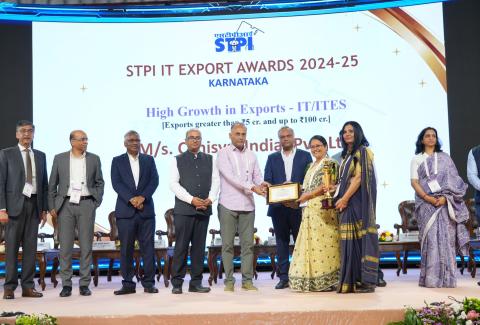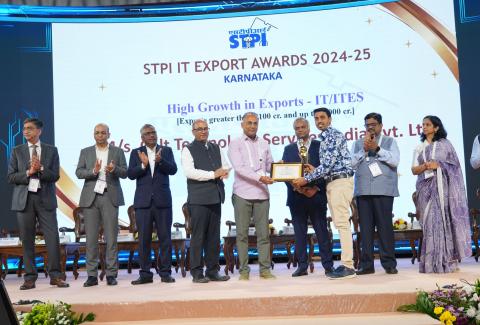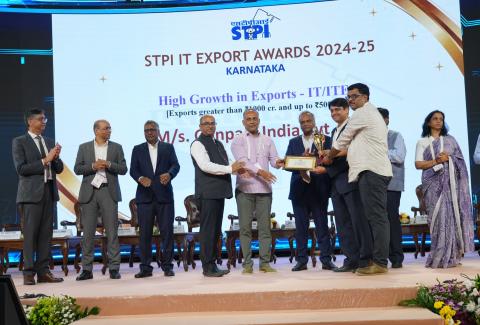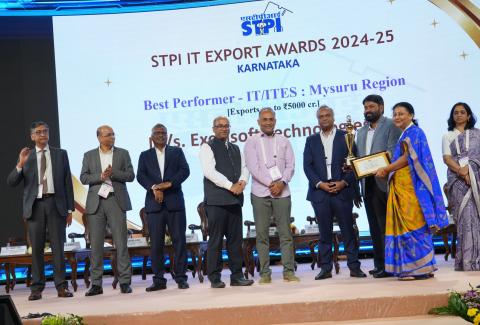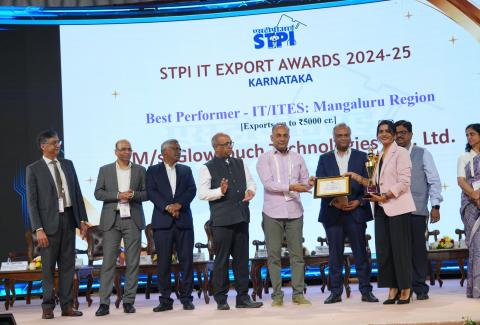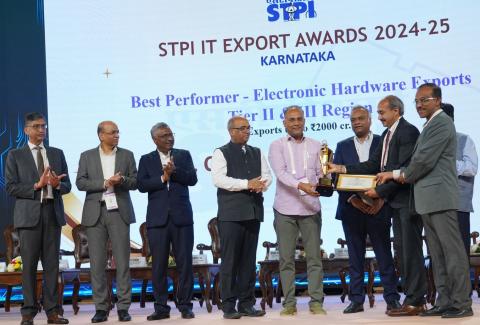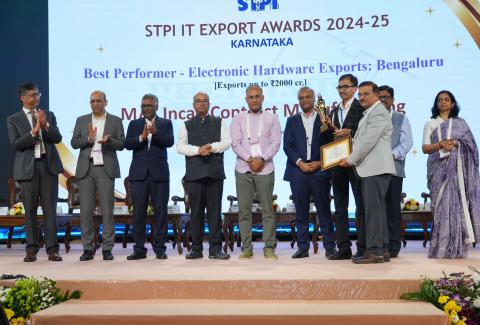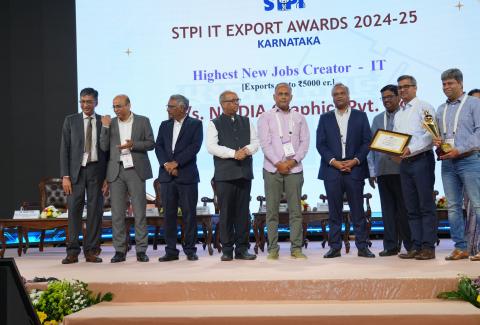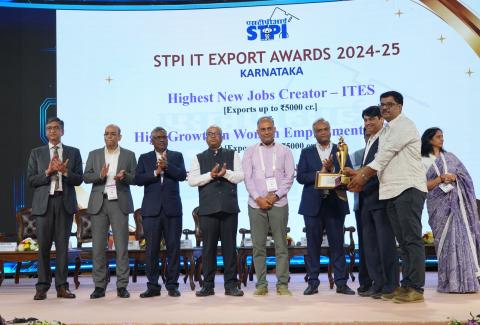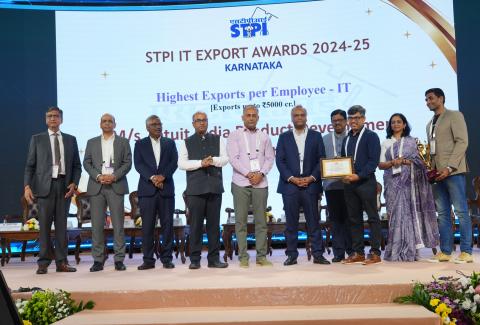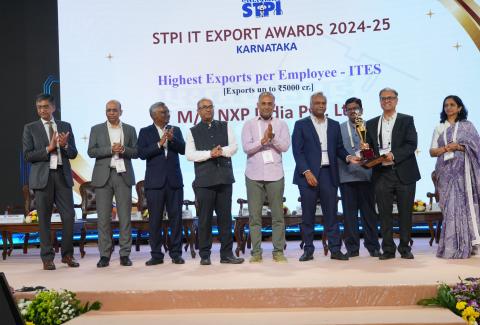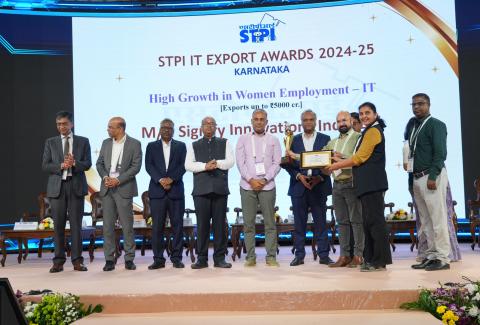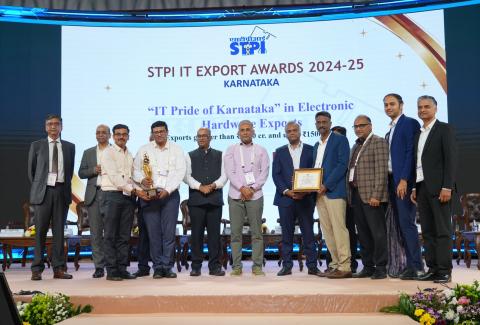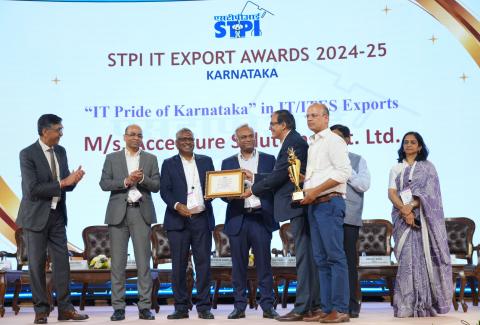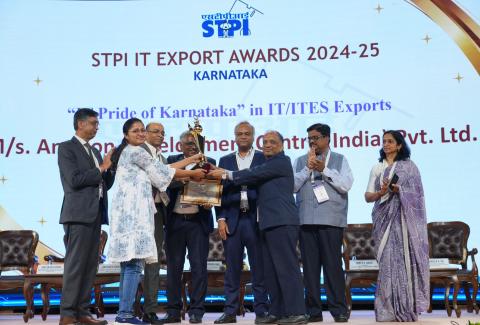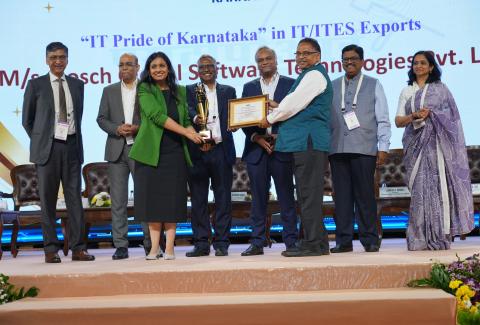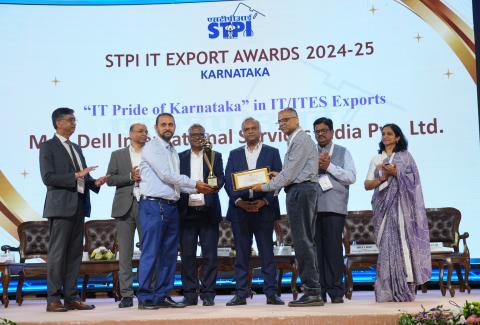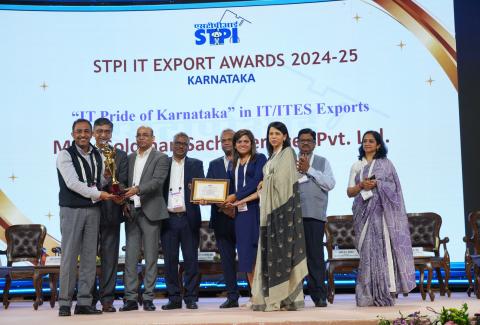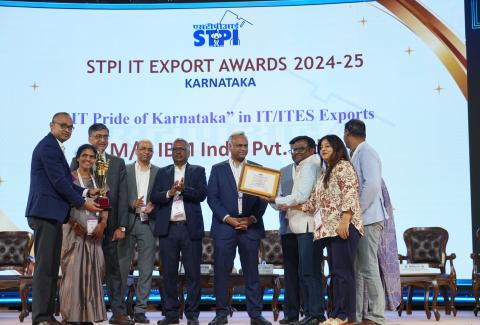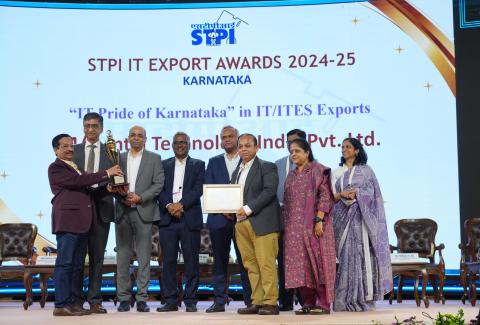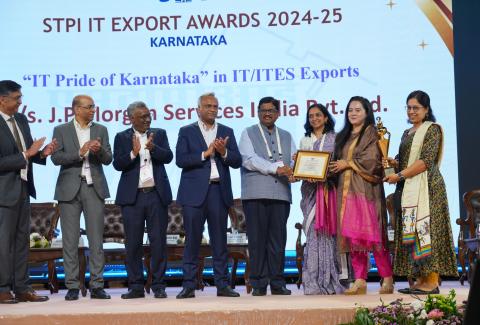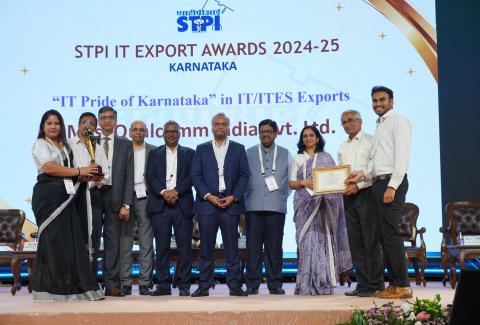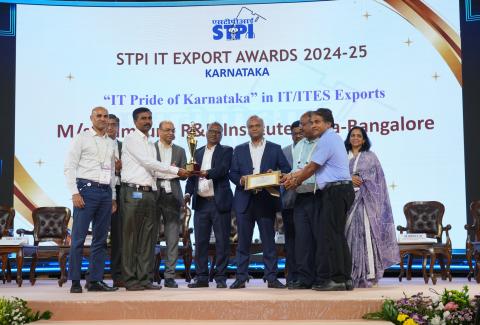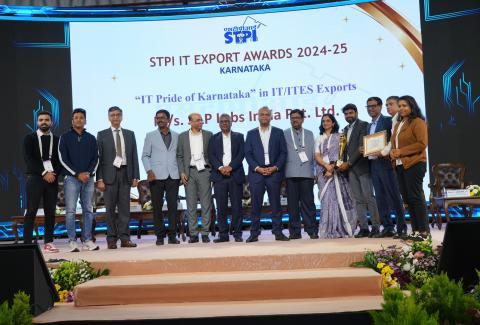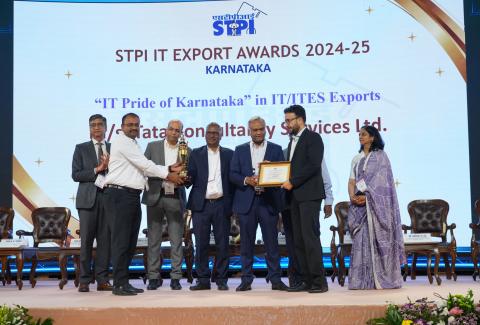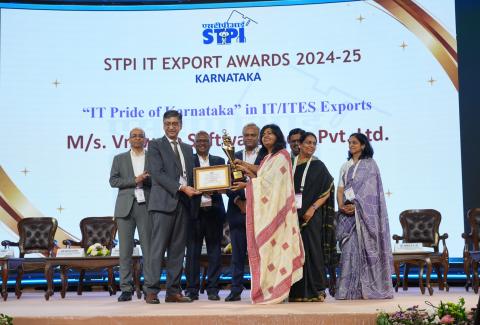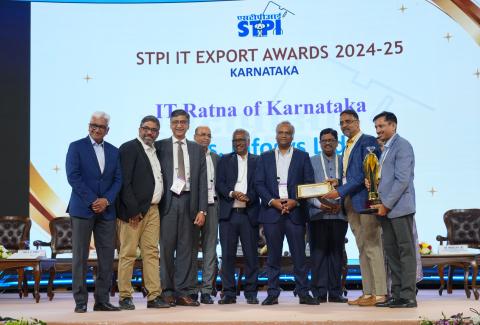BENGALURU TECH SUMMIT 2025
STPI is co-hosting the 28th edition of Bengaluru Tech Summit — Asia’s premier platform for technology, commerce, and innovation — scheduled from 18th to 20th November 2025. Themed ‘FutuRise’, the event is organized by the Department of IT, BT and S&T, Government of Karnataka. STPI will sponsor stalls for 150 MSME and start-up companies in the IT, ITES, and ESDM sectors to showcase their innovations, and will also host the prestigious STPI IT Export Awards 2025 ceremony recognizing excellence in the industry.
‘STPI Sayuj Startup Pavilion’ at BENGALURU TECH SUMMIT 2025
STPI has been promoting IT MSMEs/Start-Ups by providing a platform for showcasing their products and services during the Bengaluru Tech Summit every year. This year also, STPI will be sponsoring exhibition space in the ‘STPI Sayuj Startup Pavilion’ at the BENGALURU TECH SUMMIT 2025 for IT MSMEs/Start-Ups. Around 150 Start-Up units across the country are expected to participate and reap the benefits of this global event. There shall also be an exclusive STPI stall for promoting STPI initiatives.
STPI Karnataka IT Export Awards for the year 2024-25
Similar to previous years, STPI will be awarding deserving IT companies during the occasion of the STPI IT Export Awards 2025 Ceremony, which will be held as part of the Bengaluru Tech Summit 2025. The ceremony will take place on Wednesday, 19th November 2025, from 6:00 PM onwards, and will witness the IT/ITES/ESDM companies receiving awards for their performance and contribution to the industry.
Pre Event of India-AI Impact Summit 2026
STPI is organizing the Pre-Event of the India-AI Impact Summit 2026, aimed at fostering discussions and collaborations around Artificial Intelligence-driven innovation. As a key facilitator of India’s technology ecosystem, STPI will curate sessions featuring domain experts, industry leaders, startups, and researchers to deliberate on emerging opportunities, challenges, and use cases of AI across sectors such as Fintech, Defence & Security, Sustainability, MSMEs, and Industry 4.0.
STPI Investor Connect Session
A dedicated platform shall be provided for curated startups from STPI’s Centres of Excellence (CoEs) to engage with leading investors, venture capitalists, and funding agencies, fostering collaboration and investment opportunities.
STPI IT Export Awardees List 2024-25 Click Here


